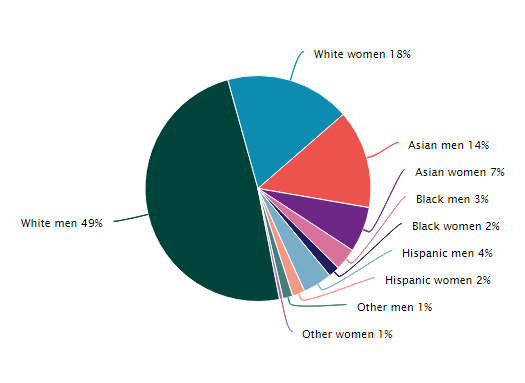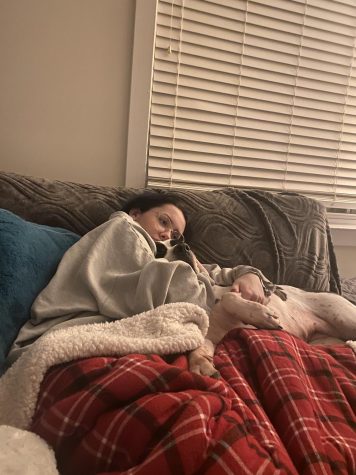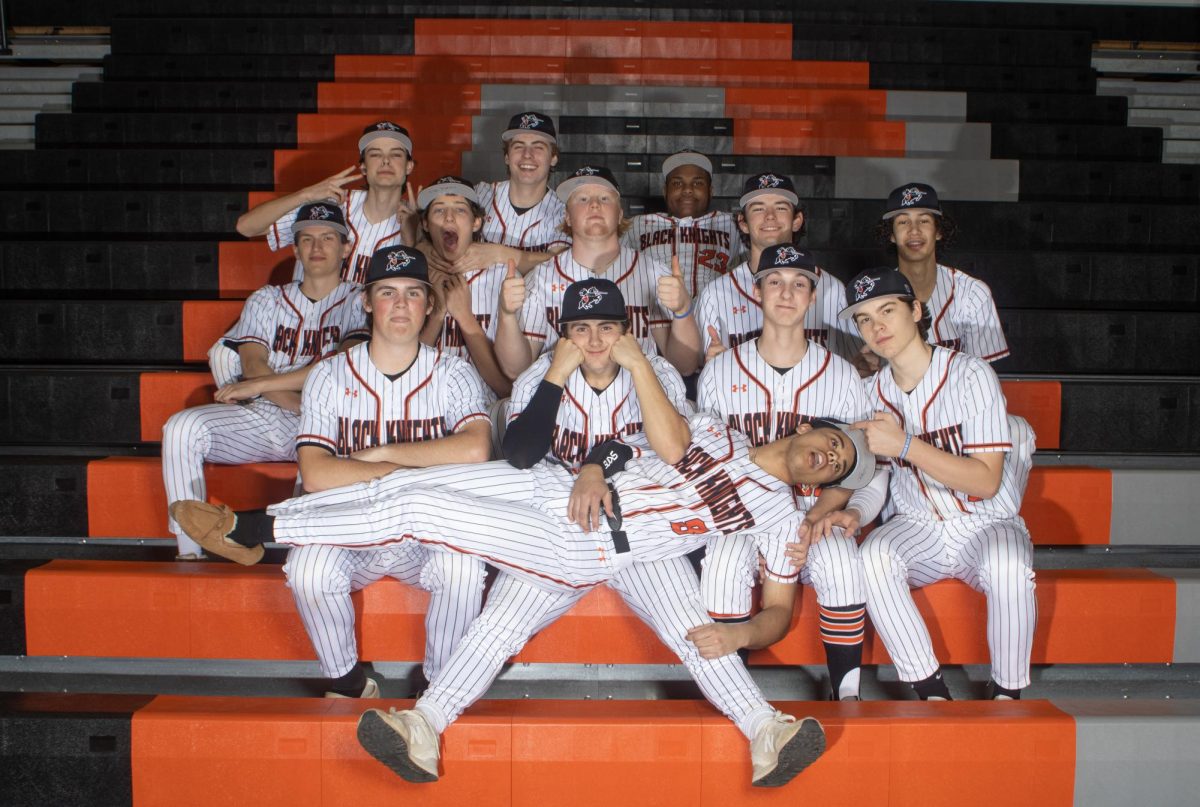Minorities in Engineering

Pie chart showing percentages of women and minorities in science and engineering from the National Science Foundation website.
October 19, 2022
It is commonly known that the STEM workforce is majority composed by white males, but what might not be known is that this stretches to the CHS engineering program as well. Multiple female engineering students have reported feeling underrepresented and discouraged from continuing to take the class, resulting in them dropping out of the course. But what could/is being done to change this?
Buford Middle School has an introductory engineering course consisting of Foundations of Engineering and Engineering 1. If a student chooses to pursue the engineering course throughout highschool they will enter the Engineering program at CHS. Students have said that the transition between the two programs creates a culture switch, having done many group projects at Buford and now having to complete more individual assignments. There is less partnership in the CHS Engineering courses and causes minorities to feel isolated from the students in their class.
Rachel Rugumayo is a current senior at CHS who took engineering 7th-9th grade. She reports having felt an overwhelming sense of isolation stating, “I didn’t receive help and felt like I was so isolated, especially as a girl. If you don’t have support it’s basically impossible to do well in the class.” Claire Deguzman is also a current senior at CHS who dropped out of Engineering 1. She says, “I was 1 out of 2 girls in my class and she was my lab partner. She decided to quit so I quit as well because I didn’t want to deal with being the only girl in my class.” Other students have reported feeling discouraged from taking the class due to not only feeling isolated but not getting the same attention and approval as their white male counterparts.
There are multiple programs to ensure equity and encourage diversity within the field of STEM and engineering in particular, with programs such as Girls Who Code and the National Society of Black Engineers. But what is being done to help the students of Charlottesville who want to pursue studies in STEM? Well for us, there is BSTEI.
The Buford Stem Equity Initiative (or BSTEI) works to get students at Buford engaged with engineering and open the door for curiosity. “We want to expose them to the fun of engineering when they didn’t know that was a possibility for them,” says new co-leader Amarie Anderson. They have recently decided to split BSTEI into two separate initiatives, one focusing on getting students involved in STEM and one focusing on getting students within minorities to stay in STEM. This initiative hopes to create a sense of community within marginalized students in the engineering programs but providing support groups with others with a similar identity, helpful tips to do better in the class, and generally make the environment more comfortable and less isolated. “If these kids are being discouraged this early they won’t even get the chance to change the industry and make it a better place.”
This program has gotten support from the engineering teachers at CHS. Mr. Garcia, an engineering teacher from Philadelphia says, “Something I heard a lot in Philadelphia was “If you want to be it you have to see it” so we’ve been working a lot more to bring outside speakers that work in STEM but aren’t just upper class white men so students can see that representation in the field.” There are efforts being made to change the classes by teachers but is it enough? How can they change the system for the better if they have never experienced the discrimination they want to address?
When asked for a message of hope for marginalized students taking the class who feel discouraged Amarie says, “You’ve got it. You can do it, you can get through it and we’ll help you. If there’s a question you’re afraid to ask we’ll answer it. And if you’re feeling isolated we’ll set you up with a support group. We want to help you change the industry.”





